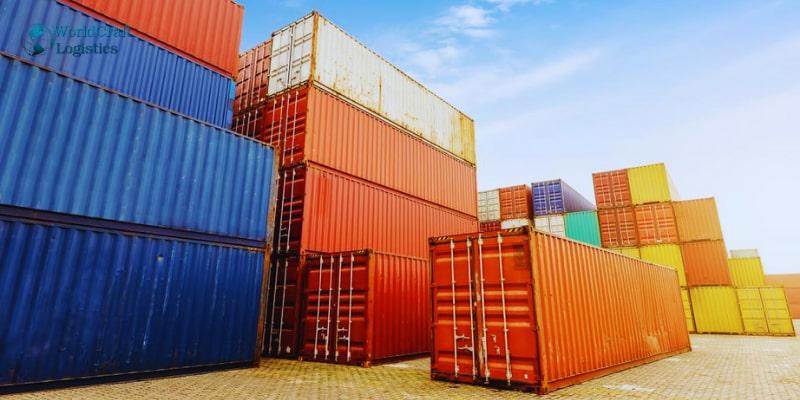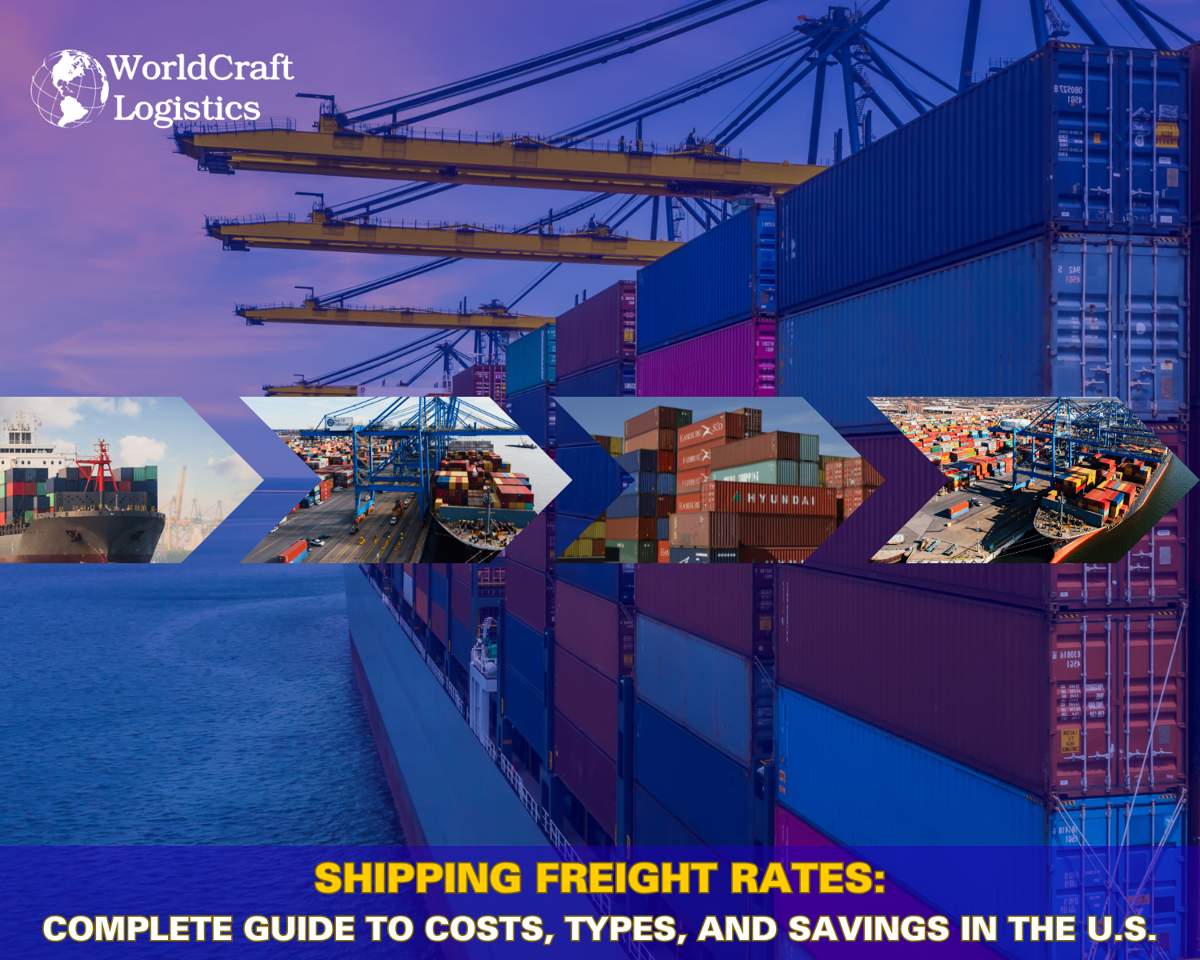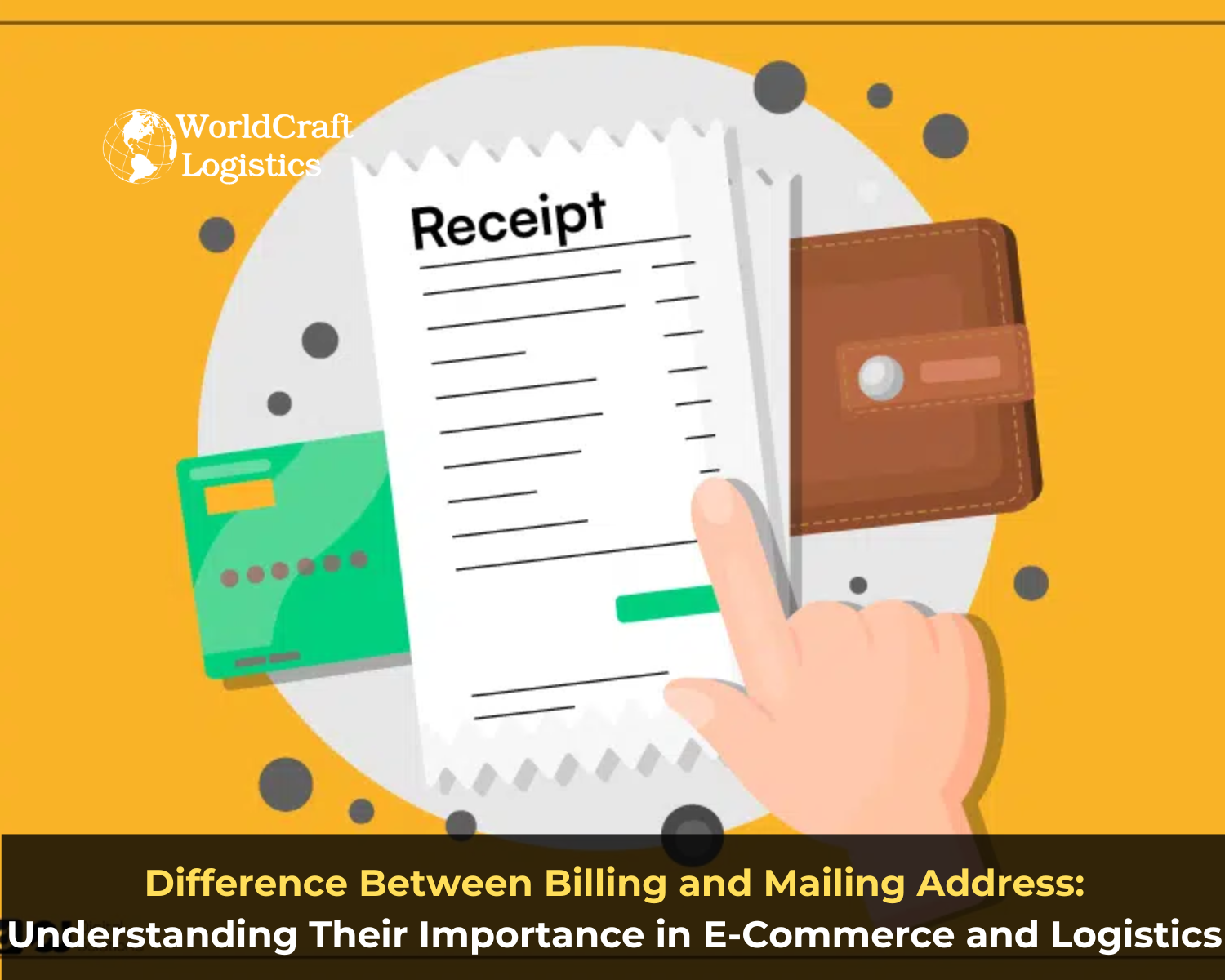
Starting June 1st, 2023 Our warehouse fee will be $0.65/cubic foot per month
In effort to lower the warehouse storage fee during inflation, we have went narrow aisle racking.This construction took us four months but the project is finally completed. With narrow aisle racking, we are able to drop storage by 24%.We as partners will go through this inflation together.
11/13/2023
Most global business owners have experience and developed domestic shipping models. The source of initial sales for many e-commerce platforms. Shipping within the United States, such as from one state to another, is generally a straightforward affair. Yet, the complexity escalates significantly when businesses expand into international markets.
Crossing international borders introduces critical differences in the shipping process, demanding a savvy businessperson's understanding of these nuances. This expansion brings logistical challenges, extra taxes, and increased paperwork, elements that are typically non-existent in domestic shipping meaning.

Domestic shipping involves transporting packages within a country's borders through various carriers, it could be products or papers...These domestic carriers provide a variety of shipping options, tailored according to the nature of the package, the volume of shipments, and the urgency with which recipients need their deliveries.
Example: In the United States, this encompasses deliveries within all 50 states, the District of Columbia, and Puerto Rico, the latter being a U.S. territory. The U.S. boasts a wide range of domestic shipping carriers, including regional parcel carriers, allowing businesses to tailor their shipping strategies. To satisfy diverse customer requirements across the country, businesses often employ a mix of carriers and shipping services.
Join Worldcraft Logistics to learn new, useful terms for you through the following articles:
- What is Cross-Docking? Benefits, effective service for businesses
- Awaiting Fulfillment Meaning and Why Is It Important in Ecommerce?

Domestic shipping offers an ideal starting point for small businesses and start-ups due to its lower administrative burden compared to international shipping. To clarify the meaning of the question "What is a domestic shipment?", refer to the following example:, there's no need for customs documentation, allowing these businesses to allocate more time to other pressing aspects of a new venture.
Moreover, domestic shipping enhances quality control. When suppliers are geographically closer, businesses can easily perform on-site inspections. Additionally, any issues, such as lost customer orders, can be resolved more swiftly.
Crucially, domestic shipping is typically faster, which aligns with customers' preference for quick delivery. Once a business masters domestic shipping, it can then consider expanding to international markets, leveraging the expertise of global logistics professionals to facilitate this growth.

Domestic shipping carriers in the United States offer a diverse range of options, tailored to the size of the package, delivery speed, and its contents.
For example, the United States Postal Service (USPS) provides flat-rate shipping for documents and small to mid-size items within the country. There are also services for overnight deliveries and handling overweight or heavy shipments, among others.
The primary shipping carriers in the U.S. are USPS, UPS, and FedEx. Each of these carriers presents a unique set of options and benefits, catering to different shipping needs.
DHL, known primarily as an international carrier, also caters to U.S. domestic shipping, particularly beneficial for online businesses with a high volume of monthly orders.
In addition to these major carriers, the U.S. market also features regional parcel carriers like Knight-Swift Transport, YRC Worldwide, Landstar System, Old Dominion Freight Line, and TFI International. These regional carriers focus on serving specific areas, offering efficient services like same-day or overnight last-mile deliveries at competitive rates.
Each country has its own set of domestic shipping carriers, and the abundance of options can sometimes make decision-making challenging for businesses in terms of selecting the right partners and services.
In the U.S., USPS is often a popular choice for domestic shipments due to its cost-effectiveness compared to FedEx and UPS. The flat-rate shipping option provided by USPS simplifies the calculation of shipping costs and estimated transit times, making it a favorable option for many businesses.
The average prices of domestic shipping in the United States for a 1.2 lbs package as of January 2023 are as follows:
For 1-2 day shipping:
For 3-5 day shipping:
For 5-7 day shipping:
Please note that these rates are based on calculations using each carrier's online pricing calculators and are subject to change based on various factors such as weight, dimensions, and destination.

Choosing the right domestic shipping carrier for your business involves considering several key factors:
Shipping Costs: Compare the rates of different carriers. Consider the size, weight, and destination of your shipments. Flat-rate options like those offered by USPS might be more economical for certain package sizes.
Delivery Speed: Determine how quickly your shipments need to arrive. If speed is crucial, look for carriers offering overnight or expedited shipping services.
Package Size and Weight: Some carriers are better suited for small, lightweight packages, while others may offer more competitive rates for larger or heavier items.
Destination Reach: If your business requires shipping to remote or less accessible areas, ensure the carrier has reliable service to these locations.
Reliability and Tracking: Evaluate the carrier's track record for on-time deliveries and their ability to provide tracking information for shipments.
Volume Discounts: If you ship in large volumes, inquire about discounts. Some carriers offer reduced rates for businesses with high shipping volumes.
Special Handling Needs: If your products require special handling, like refrigeration or fragile item care, choose a carrier that can accommodate these needs.
Customer Service: Good customer support can be crucial, especially when dealing with lost or delayed shipments.
Insurance and Liability: Understand the carrier's policies on insurance and liability in case of lost or damaged goods.
Reputation and Reviews: Check reviews and ask for recommendations from other businesses to gauge the carrier’s reputation.
Accessibility and Convenience: Consider the ease of scheduling pickups and drop-offs, and the availability of carrier locations near your business.
Integration with Business Operations: Some carriers offer tools and services that can seamlessly integrate with your business systems for easier logistics management.
Sustainability: If environmental impact is a concern for your business or customers, look into the carrier's sustainability practices.
Take DHL, for instance. It offers a flat-rate shipping solution for documents and small to medium-sized parcels within the country. Additionally, they provide services for overnight delivery and handling of overweight or large shipments.
Each of these carriers brings a unique set of offerings and advantages, designed to meet a variety of shipping needs. Particularly catering to online businesses with substantial monthly order volumes. By carefully assessing these factors, you can select a domestic shipping carrier that aligns well with your business needs and goals.

Whether your business is newly launched or experiencing rapid growth, crafting a well-thought-out shipping strategy is crucial for satisfying customer expectations and streamlining your operations. Here are some key practices to enhance your domestic shipping process:
Customers highly value quick delivery when shopping online. Offering an express shipping option at checkout can significantly enhance customer satisfaction and encourage repeat business.
Providing options like delivery to workplaces, parcel lockers, or slower, more economical shipping can increase customer satisfaction. This flexibility reduces the likelihood of purchase abandonment. Collaborating with a logistics provider like DHL Express, known for its expansive fulfillment network, can help meet diverse customer needs.

Considering many carriers calculate shipping costs based on dimensional weight, it's important to use appropriately sized packaging with minimal excess space. Automating the labeling process can also save time and reduce errors.
With 66% of consumers expecting free shipping on online purchases, offering it can be a strong incentive, despite the cost to your business. Alternatively, flat rate or carrier-calculated shipping fees are options, but they should be balanced against the risk of cart abandonment. Transparency about shipping fees is key to avoid customer dissatisfaction at checkout.
A significant portion of European shoppers, according to a DHL survey, prefer eco-friendly delivery options, even if it means longer waiting times. Services like DHL’s GoGreen Plus, which utilizes Sustainable Aviation Fuel, can enhance your business's environmental credentials.
Customers appreciate being able to track their shipments in real time with updates via SMS or email. This feature enhances customer trust and satisfaction.
With an average of 30% of online orders returned, it’s essential to factor this into your budget. Consider whether to charge for returns to mitigate impact. Preparing for returns and finding ways to reduce associated costs is an integral part of an effective e-commerce strategy.
Implementing these best practices can lead to a more efficient and customer-friendly shipping experience, ultimately contributing to the success of your e-commerce business.

Worldcraft Logistics - an international shipping company associated with reputable shipping partners in the United States such as UPS, FedEx, XPO Logistics,... also provides US domestic shipping services for online businesses. The route transports a large number of orders each month.
Worldcraft Logistics presents a streamlined and cost-effective e-commerce shipping solution, seamlessly integrating with your online store. Boasting partnerships with major shipping carriers in key markets like the United States, Canada, the United Kingdom, the European Union, and Australia, Worldcraft Logistics simplifies the shipping process for businesses operating in these regions.
The service manages your shipping operations from start to finish. This includes collaboration with both global and regional shipping carriers and providing valuable insights into shipping performance. These insights enable you to refine and optimize your distribution and shipping strategies effectively.
For businesses catering to a global customer base, Worldcraft Logistics offers a robust international fulfillment network with strategically located facilities in the US, UK, EU, Canada, and Australia. This network ensures efficient and timely delivery of products to customers worldwide.
In addition to logistical support, Worldcraft Logistics's fulfillment platform offers advanced data and analytics related to shipping, integration with leading shipping solutions, and comprehensive order management functionalities. These features are designed to streamline your logistics operations, making them more efficient and responsive to your business needs.
To discover how Worldcraft Logistics can assist in developing a successful domestic shipping strategy for your business, consider reaching out to their fulfillment team for more detailed information and tailored solutions.

The duration of domestic shipping can vary significantly depending on the country's size and the specific regions involved. In larger countries like the United States, domestic shipping generally takes between 1 to 5 business days, influenced by the shipping zones or destinations. Additionally, regional carriers often provide same-day or overnight services for local shipments, offering a cost-effective and rapid alternative for domestic deliveries.
The choice of the best carrier for domestic shipping hinges on various factors and differs from one country to another. Priorities such as reliability, speed, and cost all play a role in this decision. In the United States, for example, USPS is often favored for domestic shipments due to its extensive national network, facilitating convenient drop-offs and pickups, and generally offering the most competitive rates. Each carrier has its unique strengths, so the ideal choice will depend on the specific needs and priorities of the shipper.
Domestic and international shipping differ fundamentally in terms of logistics and paperwork. Domestic shipping refers to the transportation of goods within the same country and typically requires only a shipping label without the need for additional documentation. In contrast, international shipping, which involves sending goods to a different country, is considerably more complex. It involves navigating through customs, tariffs, and additional taxes, necessitating more paperwork and often incurring higher fees.
In summary, domestic shipping is an essential aspect of internal trade, entailing the transportation of goods within a country's boundaries. It is generally simpler and faster than international shipping, requiring minimal documentation. The choice of the right carrier, dependent on factors like reliability, speed, and cost, is crucial for effective SCM. Understanding domestic shipping is fundamental for businesses to meet customer demands and succeed in the national market.
SEO
Digital Marketing/SEO Specialist
Simon Mang is an SEO and Digital Marketing expert at Wordcraft Logistics. With many years of experience in the field of digital marketing, he has shaped and built strategies to effectively promote Wordcraft Logistics' online presence. With a deep understanding of the logistics industry, I have shared more than 500 specialized articles on many different topics.

Education
01/05/2025

Education
02/18/2025

Education
01/01/2024

Education
09/09/2025

Education
08/28/2024